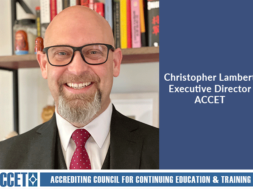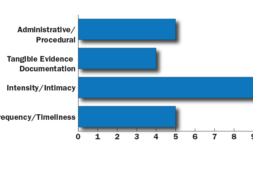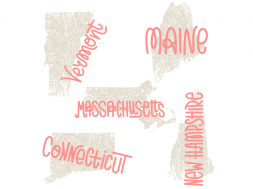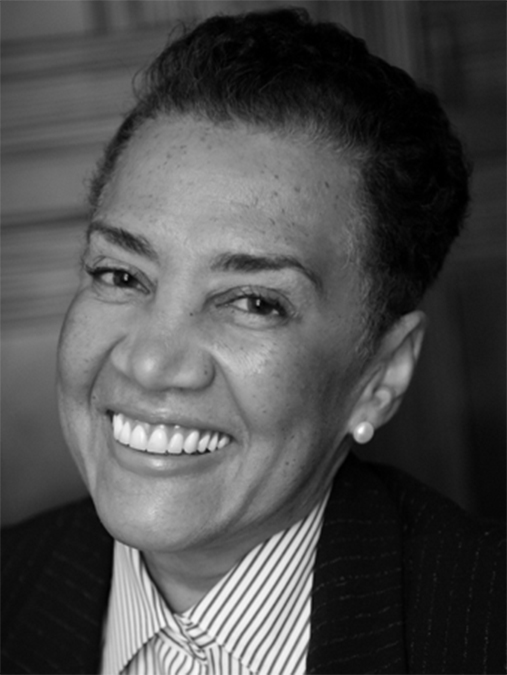
Tate: Critics of Accreditation Don’t Understand the Process
Interview with Florence Tate, Executive Director, Accrediting Bureau of Health Education Schools (ABHES)
Tell us a little bit about your background.
My postsecondary education began with Bay State College, a proprietary school in Massachusetts that still exists today. My SAT scores were poor and therefore, I was not eligible for entrance into any of the regional colleges. I learned shorthand and took a legal secretary course at Baystate. As part of my externship, I worked with a lawyer who encouraged me to further my education. So I transferred my credits to Notre Dame College.
After graduating from college, I taught in a public school system. At the same time, I answered a newspaper ad from a college seeking an evening school teacher. What we refer to as workforce development today was called Model Cities then, and this program was my introduction to the proprietary sector.
I was fortunate to work with two men, Joseph Calihan of Bradford School, which still exists today, in Pittsburgh, Pennsylvania, and Jack McCartan, who has since died. They taught me how to operate proprietary schools. These two gentlemen were two very brilliant, honest and reputable people. The University of the Potomac in Washington, D.C. was one of Jack’s schools and I became president of that institution under Jack. I led the Potomac staff when changing accreditation from the Accrediting Council for Independent Colleges and Schools (ACICS) to Middle States Commission on Higher Education (MSCHE).
When Jack sold Potomac, I went to work at Champion College Services for a year, and following that experience decided to start a consulting business. Throughout my time with Jack and Joe, as well as through my consulting business, I was involved with accreditation.
I did voluntary evaluations for ACICS, as well as for the Accrediting Council for Continuing Education and Training (ACCET) and the Accrediting Bureau of Health Education Schools (ABHES). As noted in my bio, I served on the ACCET commission, and then became its chair.
When I left as ACCET chair, ABHES’ Executive Director Carol Moneymaker asked me to consider becoming a commissioner for ABHES. Although I said no several times she eventually talked me into it. During my second term, I was, once again made commission chairwoman. During the time I was commission chairwoman, Carol became ill and the executive committee asked me to temporarily take over her position while she regained her health. Unfortunately, Carol died within one week of that request and the commission offered me the opportunity. As a part of that offer, I was also asked to close my business in order to officially become ABHES’ executive director.
Was it a hard decision to give up your business?
Let me put it this way – I had a very healthy business. But the executive committee wanted someone who would be on-site, and they felt that I would bring knowledge gathered from having been a school president. I was a change agent. I can’t believe that it has been two years as of this past November.
Tell us a little about ABHES.
ABHES was organized in 1964 and was originally called the Accrediting Bureau of Medical Laboratory Schools. The first program it ever did was in the area of medical lab technician.
Today, ABHES is recognized by the Secretary of Education as a specialized national accrediting body and as a reliable authority in the area of allied health. Its approved and recognized scope includes degree and non-degree granting private, postsecondary institutions offering educational programs, predominately in allied health, programmatic accreditation for medical assisting, medical lab technician and surgery technology programs. There are about 17 specialized accreditors, meaning that their scope includes both institutional and programmatic accreditation. We have many regionally accredited institutions and hospital-based institutions that bring the programs to ABHES so the students can sit for credentialing and licensure exams. That’s the real value of the programmatic recognition.
In September 2016, ABHES received continued recognition from the U.S. Department of Education for the maximum time of five years. Was the process more intense this cycle due to the increased scrutiny of accreditation by the DOE?
It takes a whole village to prepare that petition. Every ABHES staff member was involved. We have a lot of different programs and operations, and I think we received approval for five years, not only because of the well-written narrative, but also because of the supportive documentation that we provided to the Department. When we look at institutional accreditation, our difference is that we look at every single program. Let’s say you have dental and nursing programs at your institution. When we evaluate your institution, we bring subject matter experts in dental and nursing. It’s those practitioners who assess the quality and the health of those programs, looking at every single part, from admissions, education, student services, financial aid, retention and career services. I believe institutional accreditors should always do this. ABHES assesses each program on a visit as a single entity for both institution and programmatic review.
Using the words of ABHES’ former General Counsel, Michael White, “we want every one of our graduates from our member institutions and their programs to pass the ‘my loved ones test.’”
To him, that meant we want to make sure that when one of our graduates is taking care of one of our loved ones, that each graduate has passed the test and met the required credentials.
Did they grill the accreditors more at the National Advisory Committee on Institutional Quality and Integrity (NACIQI) June meeting because of the increased focus on accreditation?
Accreditors know of the perceived deficiencies of its processes. There were four primary areas: debt, default rates, outcomes and fraud. Each accreditor had to provide data as to the debt incurred by its membership’s graduates, what were the particular outcomes, how those outcomes were determined and how fraud had been established as well as how an accreditor handled the violation. Accreditors had to assess the data and provide the student metrics of the member institutions. This was intense because those questions weren’t a part of the original petition: however due to all that has happened since the closing of Corinthian, accreditors are under greater scrutiny and are being held accountable for the lack of trust in the public and the cost of education.
But the funny part about it was that when you answered the questions, it seemed that the NACIQI members were unaware of how to handle the information provided, except when the results were extremely poor. There understanding of accreditation and its processes is limited.
When they talk about outcomes, are they talking about graduation rates? Or are they defining outcomes as something else?
Every accreditor has its own quantitative and qualitative measurement, or formula for assessing outcomes, although some of the accreditors had not addressed outcomes as the NACIQI Board expected. As as example, one programmatic accreditor, ABA, the Amercian Bar Association was unable to adequately address the number of unemployed lawyers and the amount of debt incurred.
There are outcomes that assess learning as it relates to the quality of a program; and there are outcomes which measure retention, graduation, placement and licensure.
Has ABHES made any changes due to the increased scrutiny on accreditation? For example, has it added any new requirements?
ABHES is very aware of how accreditors are perceived; yet, we have not made any changes. Part of our process is to monitor all of the areas by which the Department of Education would establish to monitor the health of an institution. We scrutinize each program individually offered at the institution, as well as programmatically, for schools or programs to remain an ABHES member.
Let me use the financial area as an example: An institution must retain certain ratios and if it does not, the Department may give the institution the option of taking a letter of credit (LOC) representing approximately 50 percent of the Title IV aid received. Or, the institution may choose to receive its financial aid under a restricted payment plan called HCMI along with provisional certification. Today, they’re requiring even the regionals to look at their programs. They too are putting more schools on probation due to the NACIQI reaction to the public outcry of accountability.
This is a good example of the changes due to the increased scrutiny of accreditation. But we were already doing much of it. Gainful Employment regulation requires that we monitor another piece of data. We’ll make that an element as we look at finances and the monitoring of default rates and financial ratios. We try to determine problems before they become a crisis. But we miss sometimes. A good example of having missed is Heritage College, which closed abruptly.
ACICS was denied recognition by the U.S. Department of Education. Since they’ve been denied recognition, has ABHES received more applications for accreditation? How many new schools could you pick up?
Right now we have between 40 and 50 pre-applications and applications. A pre-application, is a preview to determine how many programs the institution has and the outcomes on those programs. We also ask them about their financials; and we have to make sure that they meet our scope of eligibility, which is that 70 percent of a school’s programs have to be in the area of allied health or 70 percent of a schools total population is enrolled in health programs. Yet, I think more are coming. ACICS only had about 242-257 institutions that it accredited, but they were institutions with multiple campuses and many, many programs.
Have you had to hire new people?
Yes, we have hired three new employees, in order to maintain our process of review.
How long does the process to receive accreditation typically take?
It usually takes a year to a year and a half. Once preapplication is made and eligibility is determined an application is required. An institutional member must attend a workshop to understand what it is to be accredited by ABHES. The workshop prepares the institution for the preliminary visit and the writing of the draft self-study. The program or institution completes a draft self-study of the institution for every single program it wants considered. As you can imagine, a draft self-study with a large number of programs could be enormous.
We have one school in particular that will take six or seven weeks to complete the visits since we visit every single campus and review every single program.
The gathering of information is a written narrative and the purpose of the reports is to confirm the information provided within the self-study or not in the self-study. The institution receives a copy of the report and responds. The report goes to the commission, along with the school’s response. A possible timeline for the program or institution that has its application in by January 2017, would be presented by a commissioner to the full commission, if everything went appropriately, in January 2018.
Are there any frequently asked questions you receive from schools?
They want to know about eligibility and should they teach out programs in order to come to us. I know some schools are teaching out so they can have 70 percent of their programs in the area of allied health. They ask us if they can bring a non-allied health program over while they’re teaching it out. They want to know what to do if they’re not meeting the outcomes we require. That’s a big question all the time. What do we do if we’ve had financial losses? What do we do if we’re under heightened cash management with student financial aid? Does ABHES visit all campuses? How many people should attend the workshops?
Do you look at those by each instance?
Yes. We look at each instance to see how they are represented. We prefer that they know what takes place so that time and money is well spent.
We know there are critics of accreditation – some of the media, the Department of Education and various groups – who say there is a conflict of interest. How do you address that?
As I stated previously there are perceived deficiencies; but at the same time there are many whose accreditation knowledge would be enhanced if they spoke with the accreditors, or participated or observed an actual visit. The conflict of interest policies, procedures and processes are well documented. During the training process of evaluators all must complete a package of materials which define expectations. The process is the same for all that participate in accreditation.
For example, I just had a commission call to determine how a particular matter should be handled with one institution; three of my commissioners had to recuse themselves due to conflicts of interest. They couldn’t participate on the call, listen to the discussion or be involved in the decision-making process.
The value of having subject matter experts in the field to review program intricacies of member institutions speaks to the importance of passing the “loved ones test.”
You have a surgical tech practitioner looking at your curriculum in surgical tech. You have somebody who understands the value of the process, the competencies that must be determined and whether they are relevant or not, and knows the appropriate equipment. The external externships are significant to support that student’s knowledge.
Your annual conference is coming up in February. Tell us about it and why people should attend.
The National Conference on Allied Health Education is going to be spectacular. ABHES Assistant Executive Director India Tips, ABHES Senior Accreditation Coordinator Mary Margaret Coughlin and ABHES Administrative Assistant Laurie Hart, along with the Conference Planning Committee have created a great show. The annual conference always brings together the best of the best in postsecondary health care education with an array of informative and timely break-out sessions and a variety of exhibitors that showcase products and services that cater to those in health care education. We have 62 applications to be a part of the workshops at the conference.
Because of the transition with ACICS institutions, I expect that we’ll have many more ACICS people attending.
ABHES also hosts a number of pre-conference trainings and workshops. For example, we do program specialist evaluator training ahead of the conference.
In summary, the conference will give people a chance to spend time with great people who share best practices in health care education. They can learn new and advanced ways of doing training, learn how to become an evaluator as well as spend time with ABHEs.
What are ABHES’s goals, both short-term and long-term?
The ABHES commission completed a strategic plan just two years ago; however we are planning an update to it in May since we have already accomplished several goals. One objective was re-recognition with the Department of Education. The preparing of the petition was led by Amy Rowe, Director of Compliance and Institutional Development. Another objective included refining the operations of the organization, and a third was to seek the scope for providing the master’s credential. This third objective is in process and will be presented to the NACIQI Board in February 2017. Joyce Laing, the Director of Curricula, Programs and Financial Assessment took the lead on this project. The Department of Education liason has been out with Joyce and the practitioners and has visited the institution to evaluate the program.
The institution received zero violations during the visit and it is doing a phenomenal job. Joyce is putting the final touches on the petition and training for staff and commissioners will be held in January.
Strategic plans are living documents and as we are evolving, the commission must re-examine our mission. I do not believe that our values will change in terms of how we serve our members: respect, integrity, quality, service and innovation. I believe those values will support whatever new goals are developed in servicing our members. People will tell you all the time that we are very responsive. You call us; we call you back. You send us an email; we get right back to that email. That’s who we are and that’s who I want us to be. I think when you’re in health, you have to be caring. I want to make sure that our members remain proud of who we are as an accrediting body.
Do you think accreditation will change in the next five years? If so, how?
Oh yes! Accreditation has to change its public perception and one of the very first elements that will happen is reauthorization. That should be a priority in Congress. Whatever happens in reauthorization and how people participate in reauthorization, will impact accreditation and, therefore, impact the membership. Now we’ll have reauthorization overseen by a Republican authority, rather than a Democratic authority. I think that accreditation will change based upon how that authority impacts the regulations.
What do you see as the future of career education?
Career education will be here forever. Look at all the jobs for which career education is responsible. Tell me who is collecting your garbage? Who is providing you with fine dining or cleaning your teeth? Who is assisting your primary care provider or recording your vitals? Graduates who have developed the competencies in these fields.
However, I do believe the future of career education will hold more employer and graduate input who will provide substance to what career education means and how this entity is represented in the global society.
FLORENCE TATE became the executive director of the Accrediting Bureau of Health Education Schools (ABHES) in November 2014. The former president of the University of the Potomac in Washington, D.C., she has worked in postsecondary education for more than 30 years.
She previously served as commissioner and chairwoman of the Accrediting Council for Continuing Education and Training (ACCET) and has participated in more than 300 accreditation evaluation visits for three national accrediting agencies, including ABHES. Tate has also served on several boards, regulatory counsels and advisory groups, and has been a frequent presenter on issues affecting higher education.
As ABHES executive director, Tate manages the operations of ABHES, which includes overseeing accreditation activities and staff. She is the primary liaison to state and federal regulatory bodies, including the U.S. Department of Education. Additionlly, she works closely with other national accrediting agencies and credentialing agencies in health care disciplines.
As the Executive Director, she serves as staff liaison to the Executive, Governance, Bylaws and Finance Committees, including the Commissioner Nominating Committee. Tate is the primary editor for ABHES’s biannual newsletter, “The Advantage.”
She is a graduate of Notre Dame College, Manchester, New Hampshire, with a bachelor’s degree in business administration and education.
Contact Information: Florence Tate // Executive Director // Accrediting Bureau of Health Education Schools (ABHES) // 703-917-9503 // ftate@abhes.org // www.abhes.org











